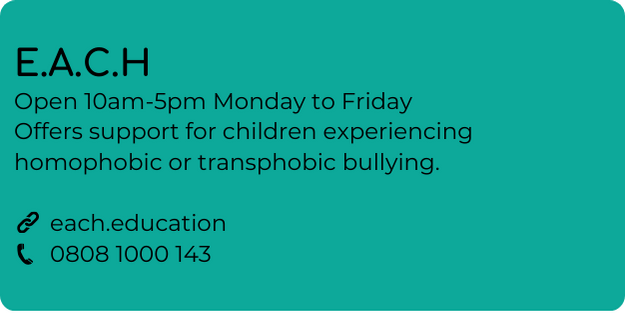Standing Strong Together with Starling Arts: Uniting Against Bullying
/With Anti-Bullying Week coming up from November 13th to November 17th, many schools and communities will be focussing on anti-bullying efforts.
As part of our Official Wicked Workshop offering, we run an Anti-Bullying workshop themed to the musical. In the run up to Anti-Bullying week we're sharing information, tips and advice for dealing with bullying in your school or community. Discover more about the many forms of bullying, who it impacts, and how you may be able to tackle bullying and offer support.
What Is Bullying?
Bullying is an invasive and harmful social issue that continues to be a concern in many schools, workplaces, and communities around the world. It involves the repetitive and deliberate use of power and aggression to intimidate, harm, or exert control over a person or a group. The outcomes of bullying are profound, impacting the physical and emotional wellbeing of many individuals, as well as the overall atmosphere of the environments in which it occurs.
The Anti Bullying Alliance offer the following definition of bullying:
“The repetitive, intentional hurting of one person or group by another person or group, where the relationship involves an imbalance of power”
Why Is Anti-Bullying So Important?
It is important that we understand the depth of the impact that bullying has on an individual. Bullying is not just about hurtful words or actions, it has many forms that can affect a person’s quality of life.
These forms include:
Physical Bullying: Direct physical actions such as hitting, pushing, or any form of physical harm.
Verbal Bullying: Direct verbal actions that includes name-calling, taunting, threatening, and any form of verbal abuse that belittles or intimidates the victim.
Social Bullying: Indirect actions that include deliberately excluding someone, spreading rumours, or engaging in any activity that damages the victim’s social reputation or relationships.
Cyberbullying: Directly attacking an individual online using technology to harass, intimidate, or humiliate through social media, direct messages, or online forums.
For further information, please visit the Anti-Bullying Alliance website.
Further information about bullying is included in our Anti-Bullying workshops, in which students learn more about these forms of bullying.
Who does bullying involve?
Certain groups may be more commonly targeted for bullying due to various characteristics and circumstances. Some groups that are more vulnerable to being targets of bullying include:
LGBTQ+ Youth
Students with disabilities
Racial and ethnic minorities
Individuals with different religious beliefs and background
Individuals from low socioeconomic backgrounds
Socially isolated or introverted individuals.
For more information about why these groups may experience higher levels of bullying, please find more information on the ABA website. If you’d like to learn more about the impact of bullying please look into their free online training programme.
It is important to note that anyone can be a target of bullying, and the reasons behind bullying can be complex and multifaceted. Efforts to prevent and address bullying should focus on creating inclusive, respectful, and accepting environments for everyone, regardless of their background or characteristics.
Understanding Roles Within Bullying
It is important to note that individuals can play different roles when it comes to bullying. There are several roles that contribute to the bullying cycle:
The Target
The Ringleader
The Assistant
The Reinforcer
The Outsider
The Target and the Ringleader are what comes to mind when most people think of bullying. However, when it becomes a serious issue, bullying usually contains a unit of roles, with others assisting and reinforcing the actions of the Ringleader.
One main objective in bullying awareness is to identify when these roles take place, and how not to be ‘the outsider’. An Outsider witnesses bullying but, while they have the power to intervene, report, and support the victims, they are not sure how to get involved, and might not know the extent of the bullying that is taking place. We want to encourage ‘the outsiders’ to stand up against bullying and be an ally to those targeted, to create a positive and inclusive environment.
Our Official Wicked Anti-Bullying workshop explores some of these roles, and the ways we can combat bullying through our own actions.
Tackling bullying together
Tackling bullying is an important and challenging endeavour that requires a combination of individual and collective efforts. Here are some hints and tips to address bullying effectively:
Raise Awareness: Start by educating yourself and others about what bullying is, its forms, and its consequences. The ABA offers free training modules that anyone can complete. Our Official Wicked Anti-Bullying workshop allows students to explore the key elements of Anti-Bullying so they are more informed, empowered and able to find ways of dealing with bullying.
Report Bullying: If you witness or are aware of bullying, report it to the appropriate authorities, whether to a teacher, school counsellor, or a relevant authority figure.
Create a Safe Environment: Foster a safe and supportive environment in your school, community or workplace where individuals feel comfortable reporting bullying without fear of retaliation. Our Official Wicked Wellbeing workshop encourages this sort of environment and is a perfect partner to those learning about Anti-Bullying.
Anti-Bullying Policies: Support the implementation and enforcement of anti-bullying policies in schools, workplaces, and organisations. Advocate for clear consequences for bullying.
Cyberbullying Awareness: Educate yourself and others about the dangers of cyberbullying and how to stay safe online. Report cyberbullying to the appropriate platforms.
Create Support Systems: Encourage those who have experienced bullying to seek support from friends, family, or mental health professionals. Encourage inclusivity and acceptance of diversity in your community. Celebrate differences and actively discourage stereotypes and prejudice.
Remember that addressing bullying is an ongoing process that requires the commitment of individuals, communities, and institutions. By working together, we can create environments where bullying is less likely to occur, and its negative effects can be minimised.
Official Wicked Anti-Bullying Workshops led by Starling Arts
Starling Arts has the pleasure of offering Official Workshops in partnership with the hit West End musical Wicked with the help of Facilitators across London and beyond.
Our Official Wicked Anti-Bullying Workshop is a unique 60–90-minute workshop exploring themes of anti-bullying through a variety of specially selected games and exercises related to the show, developed in collaboration with the Anti-Bullying Alliance. The workshop is ideal for KS1 and KS2 students, but this session can be adapted for older children and other settings.
We also offer a Wellbeing Workshop that can run alongside or independently of our Anti- Bullying workshop. Our 60-minute Wellbeing Workshop immerses participants in the fantastical world of Wicked, exploring practical and meaningful ways to enhance physical and mental wellbeing. It is ideal for KS1-KS3, but is also suitable for older children, as well as those studying performing arts at college, university, or in community settings. This session is also adaptable for teachers and school staff.
For more information, please visit the Official Wicked Active Learning website.






